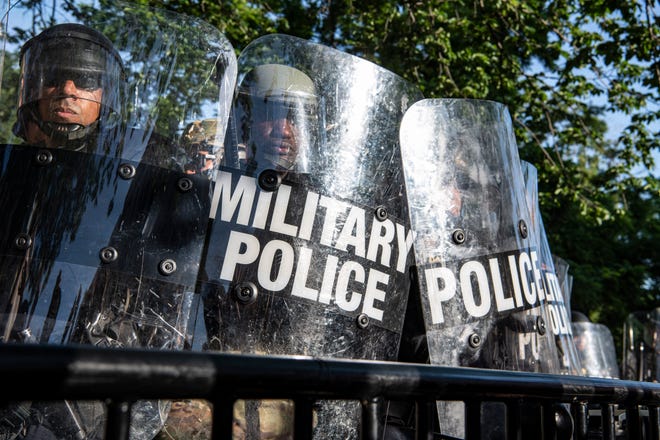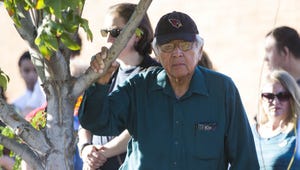Advertisement
Only a small fraction of the president’s top donors from 2016 have given as much to his re-election effort.
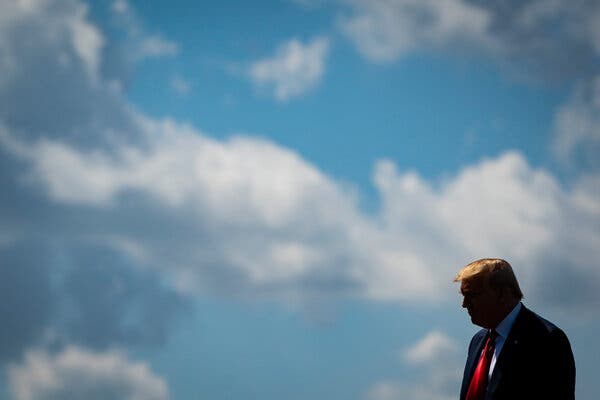
Timothy Mellon, reclusive heir to a Pittsburgh banking fortune, was such an unknown figure among Republican operatives that they needed to Google his name when he reached out in 2018, unexpectedly, to offer his help in the midterm elections.
The staff of the Congressional Leadership Fund quickly discovered this was no middling donor: Mr. Mellon planned to give $10 million — with the suggestion that he wanted to contribute more to the party at a later date, according to two people with knowledge of the exchanges.
This April, Mr. Mellon gave another $10 million, this time to President Trump’s super PAC, America First Action, the only Trump-endorsed fund-raising group permitted to collect unlimited contributions. The donation instantly transformed Mr. Mellon, a septuagenarian investor who would sometimes communicate by fax, into the president’s biggest political benefactor of 2020.
Mr. Mellon’s millions would be a big deal in any cycle, but the gift was especially welcome for this incumbent this year. The fact that an outsider like Mr. Mellon has emerged as one of the few supporters willing to be so generous illustrates a surprising problem for the president: his struggle to attract and retain a reliable stable of millionaires and billionaires willing to write seven-figure checks, despite his takeover of the Republican Party and a policy agenda that largely serves the interests of America’s ultrawealthy.
Mr. Trump is hardly lacking for cash; he has received huge numbers of small donations online from a fervent grass-roots base, and he raised a jaw-dropping $165 million in July for his campaign and the two fund-raising committees that he shares with the Republican National Committee. The Trump Victory fund, one of those committees, has also collected respectable sums through donations that cannot exceed $580,600 — as opposed to super PACs, which are vessels for unlimited contributions.
But the president’s sagging popularity, driven by his erratic and divisive behavior during the coronavirus crisis, has prompted some of the wealthiest Republicans — the heavy artillery of modern politics — to delay, divert or diminish their giving, just as Joseph R. Biden Jr. has begun to tap a rich vein of Wall Street and Silicon Valley support, party operatives and donors said in interviews.
Thus far, only six of the top 38 donors to Trump-related super PACs in 2016 and 2018 have contributed to America First for the president’s re-election, according to a New York Times analysis of federal campaign finance data.
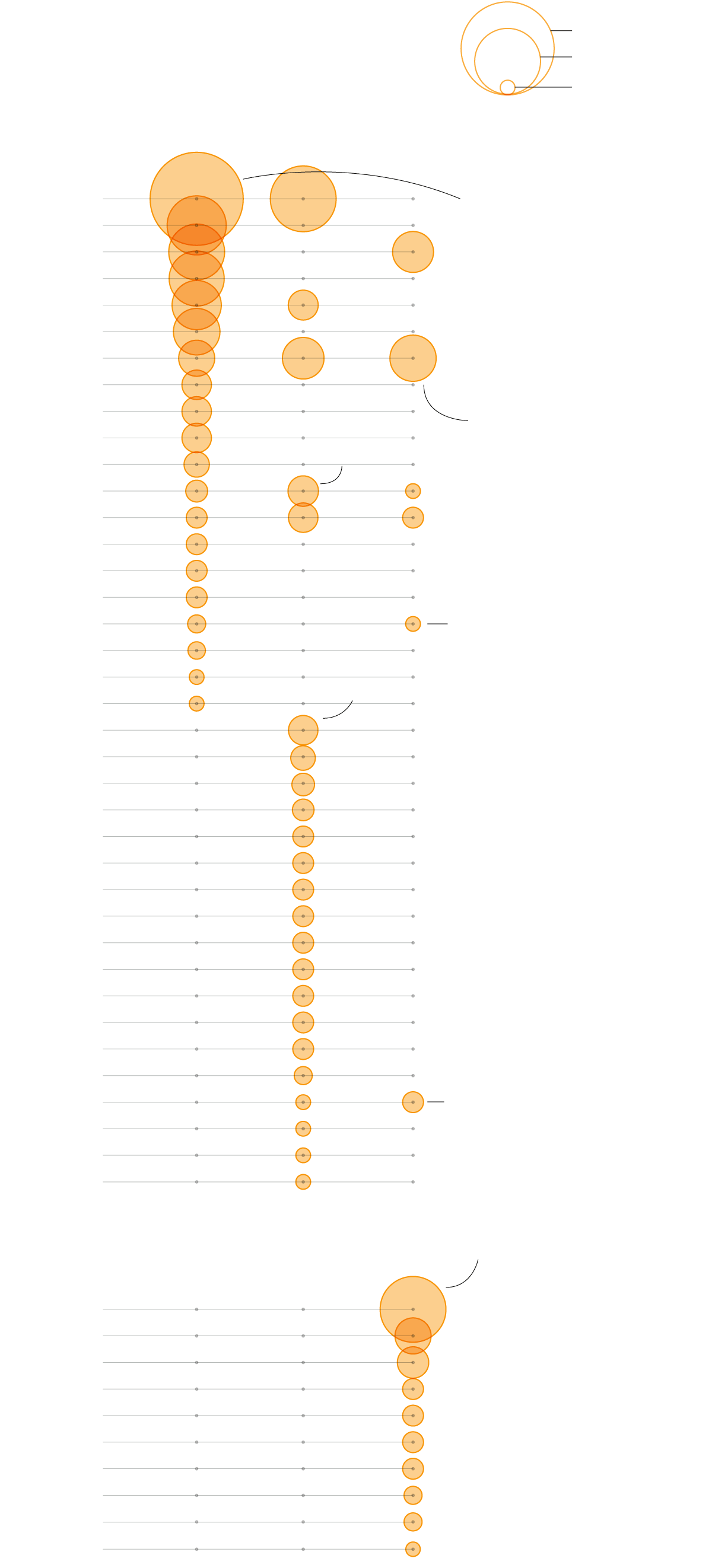
$20 million
donation
Donations of $500,000 or more to Trump-related super PACs
$10 million
$500,000
Adelson
Sheldon and Miriam Adelson gave a combined $20 million four years ago to Trump-related super PACs and another $10 million in 2018, but have yet this cycle to contribute to America First, the only official vehicle for unlimited donations.
Hendricks
McMahon
Marcus
Perlmutter
Palmer
McNair
Cameron
$6 million
Mercer
$2.1 million
Feinberg
Ricketts
Moskowitz
Buckley
$500,000
Harmon
$2 million
Bergman
Schwab
Eighteen donors gave at least $500,000 in 2018, when Mr. Trump was not on the ballot.
Zekelman
Bishop
Griffin
Singer
L. Fertitta
F. Fertitta
Deason
M. Mellon
Murray
McGill
Wright
Stephens
$1 million
Saulsbury
Perkins
New Top Donors to America First
$10 million
T. Mellon
A new crop of big donors includes Timothy Mellon, heir to a banking fortune, and Jeffrey C. Sprecher, husband of Senator Kelly Loeffler, who is in a tough re-election battle.
Schwarzman
Uihlein
Johnson
Sprecher
Scheiner

$20 million
donation
Donations of $500k or more to Trump-related super PACs
$10 million
$500,000
Adelson
Sheldon and Miriam Adelson gave $20 million four years ago to Trump-related super PACs and another $10 million in 2018, but have yet this cycle to contribute to America First, the vehicle for unlimited donations.
Hendricks
McMahon
Marcus
$6 million
Perlmutter
Palmer
McNair
Cameron
Mercer
Feinberg
$2.1 million
Ricketts
Moskowitz
Buckley
$500,000
Harmon
Bergman
Eighteen donors gave at least $500,000 in 2018, when Mr. Trump was not on the ballot.
Schwab
$2 million
Zekelman
Bishop
Griffin
Singer
L. Fertitta
F. Fertitta
Deason
M. Mellon
Murray
McGill
Wright
Stephens
$1 million
Saulsbury
Perkins
New Top Donors to America First
A new crop of big donors includes Timothy Mellon, heir to a banking fortune, and Jeffrey C. Sprecher, husband of Senator Kelly Loeffler, who is in a tough re-election battle.
T. Mellon
Schwarzman
$10 million
Uihlein
Johnson
Sprecher
Scheiner
In 2016, that group — donors giving at least $500,000 — shelled out a total of $71 million to four major Trump-backing super PACs, which America First was created to replace during the 2020 cycle. In contrast, with less than three months to go until the 2020 election, America First has raised only about $35 million from donors offering $500,000 or more.
Many of the biggest checks to Mr. Trump came in the last few weeks of the 2016 campaign, and allies are hoping that history repeats itself.
America First had, however, raised a total of just $45 million as of July 1, with 40 percent of that coming from three people: Mr. Mellon; Linda McMahon, the former pro wrestling executive who runs America First; and Geoffrey Palmer, a polo-playing, Beverly Hills-based real estate magnate.
In June 2019, Ms. McMahon predicted that the PAC and its sister nonprofit, America First Policies, would raise about $300 million for the re-election cycle. As of last month, the two groups had raised about a third of that, roughly $107 million, according to a spreadsheet of their finances provided by a party official.
The campaign faces significant headwinds going into its last few, furious months. In recent weeks, prospective contributors to America First, and Mr. Trump’s joint-fund-raising committees with the Republican Party, have responded to solicitations by expressing concern that the president has not articulated a clear vision for the next four years, according to interviews with donors and people close to Mr. Trump and his fund-raising efforts.
While many in Mr. Trump’s orbit have been encouraged by an uptick in internal polling recently — and see Mr. Biden as a weak Democratic nominee — some of the party’s top donors remain skeptical about their own candidate’s prospects.
In a move that speaks to that uneasiness, some of them — including Mr. Trump’s top 2016 contributor, Sheldon Adelson — have begun discussing the possibility of putting their cash into other fund-raising groups, ones not blessed by Mr. Trump or run by his team. The motive would be to promote a broader, more positive Republican message on the economy to offset the Trump campaign’s focus on negative, anti-Biden attacks, according to two people with direct knowledge of those discussions.
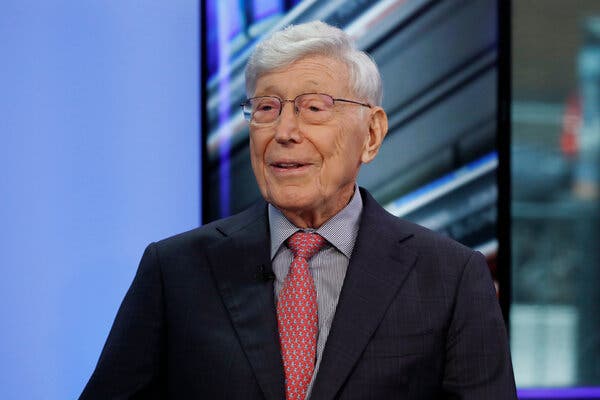
Bernie Marcus, a founder of Home Depot who recently questioned Mr. Trump on his poor poll numbers during a White House meeting, has given nothing to the super PAC after shelling out $7 million to Trump-related super PACs in 2016 and $100,000 to America First in 2018. While he and his wife have made limited donations to support Mr. Trump’s re-election this year, they have put millions toward a super PAC supporting Senate Republicans. When asked in a brief interview why his giving to Mr. Trump had dwindled, he replied, “I really have no comment.”
Mr. Trump’s two top 2016 benefactors, Mr. Adelson, a casino mogul, and his wife, Miriam, who gave a combined $20 million four years ago to a pro-Trump super PAC, have told party officials they are concerned about the optics of funding political campaigns at a time when their employees are facing financial hardship. Nonetheless, they recently uncorked a $25 million contribution to Senate Republicans. That donation prompted Mr. Trump to chastise Mr. Adelson when an aide slipped a news article about it onto his desk, according to party officials.
Few of Mr. Trump’s erstwhile donors have openly criticized him. But even those who have continued to give large amounts this cycle appear unhappy with aspects of his performance.
“Obviously, Trump, you wish sometimes he would just shut up — don’t go there, it’s not necessary,” said Liz Uihlein, a shipping supply company executive who, together with her husband, Richard, has donated nearly $3 million to America First in the 2020 cycle, after giving roughly a tenth of that in 2016 and 2018 to Trump-related super PACs.
She said she had faced blowback for her support, including customers who have threatened to take their business elsewhere. “But I’ve got a thick skin,” Ms. Uihlein said. “I just try to do the best for our company and our family.”
Tim Murtaugh, a spokesman for the Trump campaign, said the president’s overhaul take, about $1.1 billion, gave him “all the resources he needs” to beat Mr. Biden.
Ms. McMahon, a family friend whom Mr. Trump appointed as head of the Small Business Administration, rejected suggestions that his unpopularity was driving away major money.
“No one could have anticipated the economic shock to our economy this spring due to the coronavirus, so of course that impacted our fund-raising numbers,” she wrote in an email. “We didn’t push donors in May, but we began moving forward in June. Every day we are on the phone with donors and prospects.”
Some of the slack is being picked up by new supporters, or contributors like the Uihleins, who have increased their giving in 2020. Ten individuals and families who did not give significant amounts to pro-Trump super PACs in 2016 or 2018 have given at least half a million dollars to America First in the 2020 cycle.
Among the best-known newcomers is Stephen Schwarzman, chief executive of the investment firm Blackstone, who gave $3 million to America First early this year.
Mr. Schwarzman, who has also given $10 million to the Republicans’ Senate fund, has praised Mr. Trump’s efforts to reduce federal regulations, while acknowledging, gingerly, his concerns with the president’s style.
“He appears to be quite aggressive,” Mr. Schwarzman said in January, the week before he made his contribution, adding that Mr. Trump’s negotiating style was sometimes “quite difficult to watch.”
Senator Kelly Loeffler, Republican of Georgia, and her husband, Jeffrey C. Sprecher, chairman of the New York Stock Exchange, did not give to Mr. Trump’s super PACs in 2016. But this year, as Ms. Loeffler’s tough battle against fellow Republican Representative Doug Collins intensified, Mr. Sprecher sent $1 million to America First, a contribution that Ms. Loeffler’s aides say was not tied to her push for an endorsement. (Mr. Trump has stayed neutral.)
Mr. Trump has filled his administration with wealthy individuals, and a number have become major donors to America First in the 2020 cycle.
They include Mr. Trump’s ambassador to Britain, Robert Wood Johnson IV, who has given $1 million to the PAC after contributing nothing last cycle, and Kelly Craft, Mr. Trump’s ambassador to the United Nations. Ms. Craft and her husband, Joseph W. Craft III, a billionaire coal executive, gave $750,000 to a super PAC that supported Mr. Trump in 2016, and $500,000 to America First in March.
Several of Mr. Trump’s recent donors, including Mr. Craft, have direct ties to the energy industry, including coal. In 2017, the administration tried to subsidize the stockpiling of coal at energy plants, and it has subsequently taken various steps to weaken Obama-era restrictions on coal plant emissions.
Others with ties to that industry have increased their giving to Mr. Trump since 2016, including Syed Javaid Anwar, the former president of Midland Energy, who together with his wife tripled in this cycle what they had given in 2018.
And some new, big-dollar donors, like Dana White, the founder of Ultimate Fighting Championship, a mixed-martial arts promotion company, have backed Mr. Trump’s push to reopen the economy amid the pandemic.
But other businesspeople who have said their economic priorities align with the administration’s have so far limited the money they have put toward Mr. Trump’s re-election.
Diane Hendricks, who runs a building supply business in Wisconsin and has served as an economic policy adviser to the president, gave $8.1 million to a super PAC supporting Mr. Trump in 2016, but she has given nothing so far to America First this cycle, according to federal election filings.
To be sure, some who have not given to the PAC have still put comparatively modest sums toward supporting the campaign. But in a complicated fund-raising landscape with a multitude of ways to contribute, super PACs like America First have unique legal standing to collect and spend unlimited amounts of money, on the condition that they do not coordinate with the candidate they support. Fund-raising groups affiliated with political parties, in contrast, have strict contribution limits and are bound by tighter federal spending rules.
The Trump Victory fund, which has a $580,600 cap on contributions, has this year recruited at least 29 contributions exceeding $500,000 and totaling about $16 million, according to federal filings reflecting data through the end of June. Those include checks from the Adelsons, Mr. Marcus and Ms. Hendricks.
But according to federal filings, the equivalent joint fund-raising committee for Mr. Biden and the Democratic Party has done nearly as well with big donors in 2020 — bringing in about $16.6 million from roughly the same number of contributions exceeding $500,000 — despite starting nearly five months into the year.
Though Mr. Biden’s fund-raising lagged early on, his campaign has filled its coffers at a record-setting pace in recent months. In June, the last full month for which details are available, the largest super PAC supporting Mr. Biden brought in more than twice what America First did.
A handful of Republican donors have simply never warmed to Mr. Trump, including those close to the Koch brothers’ powerful fund-raising network.
But some of the problems emanate from America First itself, which has had a less-than-sterling reputation among party elites.
Some top players, including the Adelsons’ political team, long viewed the PAC as a dumping ground for exiled White House staff members and Mr. Trump’s family members, officials and donors said.
Mr. Adelson also had another concern: Some of America First’s ads have targeted China, and the Las Vegas Sands Corporation, which he runs, has significant holdings in Asia. He has told senior Republican officials that being too closely associated with the PAC could be bad for business, according to two people with knowledge of his comments.
To trim costs and reassure potential contributors, Brian O. Walsh, who runs America First’s day-to-day operations, has offloaded high-paid surrogates on the payroll, according to aides. That roster has included Corey Lewandowski, Mr. Trump’s 2016 campaign manager; Sean Spicer, the former White House press secretary; Kimberly Guilfoyle, the former Fox News host who is dating Donald Trump Jr.; Katrina Pierson, a former Trump spokeswoman; and the former Sheriff David A. Clarke Jr. of Milwaukee County in Wisconsin, who gave a high-profile speech at the 2016 Republican National Convention.
Ms. McMahon has worked with Mr. Walsh to allay concerns about the overall management of the group, and both have tried to preserve its limited resources. Their strategy of banking millions has allowed them to start a $26 million ad blitz over the summer, a spokeswoman said.
Last month, Ms. McMahon and Mr. Walsh transferred $10 million from America First Policies to the PAC, freeing them from spending restrictions; that also allowed donors who gave to the shadow nonprofit group to remain anonymous, according to a person briefed on the transaction.
Ms. McMahon has tried to fill in the gaps, donating about $4 million so far, after contributing $7 million to super PACs that supported Mr. Trump in 2016. The president, while appreciative, has privately suggested she might give even more, according to several people who have spoken with him recently.
Mr. Palmer, the Beverly Hills-based real-estate magnate, has given $6 million to America First so far this cycle, including $2 million in June alone, accounting for two-thirds of the organization’s haul that month.
But the overall failure to expand Mr. Trump’s big-donor base has caused unease. Vice President Mike Pence has been particularly concerned, as has the president’s son-in-law Jared Kushner, according to several people close to both men.
Another challenge to the fund-raising operation has been Mr. Trump’s apparent aversion to hitting up some friends for cash. Officials with the Republican National Committee, according to current and former committee aides, have complained that many of Mr. Trump’s golf and supper buddies, like the Queens developer Richard LeFrak, have had extensive face-time without paying up.
Mr. LeFrak and his two sons gave $650,000 to Mr. Trump’s joint-fund-raising group with the R.N.C. in 2016 and 2018, but they have given nothing since.
Mr. Mellon’s outsize gift has made him stand out, but so has his biography, and the fact that his donation has established him as an angel investor of sorts in Mr. Trump’s version of the Republican Party.
A self-described former liberal, he had little history of multi-million-dollar political contributions before pouring more than $40 million into Republican groups since 2018.
Seeking fewer people and lower taxes, he moved to Wyoming from Connecticut 15 years ago, as he detailed in a self-published autobiography in 2015. He made a splash in 2010 by giving $1.5 million to the legal defense of Arizona’s strict immigration law, which was later partly struck down by the Supreme Court.
With that donation, he took up the mantle of his family’s long fight for conservative causes: One relative, Cordelia Scaife May, was an ardent nativist who helped sow the seeds of Mr. Trump’s anti-immigration agenda; another, Richard Mellon Scaife, was a major backer of President Richard M. Nixon who later poured money into efforts to bring down President Bill Clinton.
During a brief phone interview last month, Mr. Mellon repeatedly criticized the credibility of this newspaper and declined to answer questions about his political giving or his support of Mr. Trump.
“I’ll contribute to him or Biden or whoever I want to,” he said. “I don’t have to say why.”
Mr. Mellon, the grandson of Andrew Mellon, Treasury secretary in the 1920s and early 1930s who made a fortune in banking, has shown an interest in reviving embattled legacy brands, having attempted to pull Pan American World Airways out of bankruptcy in the 1990s.
His book also revealed his views on race. In it, he wrote that in the mid-1980s “Black people” had become “even more belligerent and unwilling to pitch in to improve their own situations.”
He wrote that, decades later, he considered some Americans “slaves of a new master, Uncle Sam,” for their reliance on federal aid. And his 2010 donation to Arizona’s legal defense, unmentioned in the memoir, signaled his support of the restrictive immigration policies for which the future President Trump would go on to fight.
When a reporter with a Hispanic surname first reached out to Mr. Mellon, he responded with two text messages written in Spanish, though the queries had been made in English.
In one, he invoked the slogan of Goya, the Latin foods company whose chief executive’s support of Mr. Trump set off a boycott among some consumers.
Unprompted, he wrote: “¡Si es Goya, tiene que ser bueno!”
Kitty Bennett and Susan Beachy contributed research.
-
-
- At least three-quarters of Americans will be eligible to vote by mail in November. See the state-by-state breakdown of rules for absentee ballots.
-
